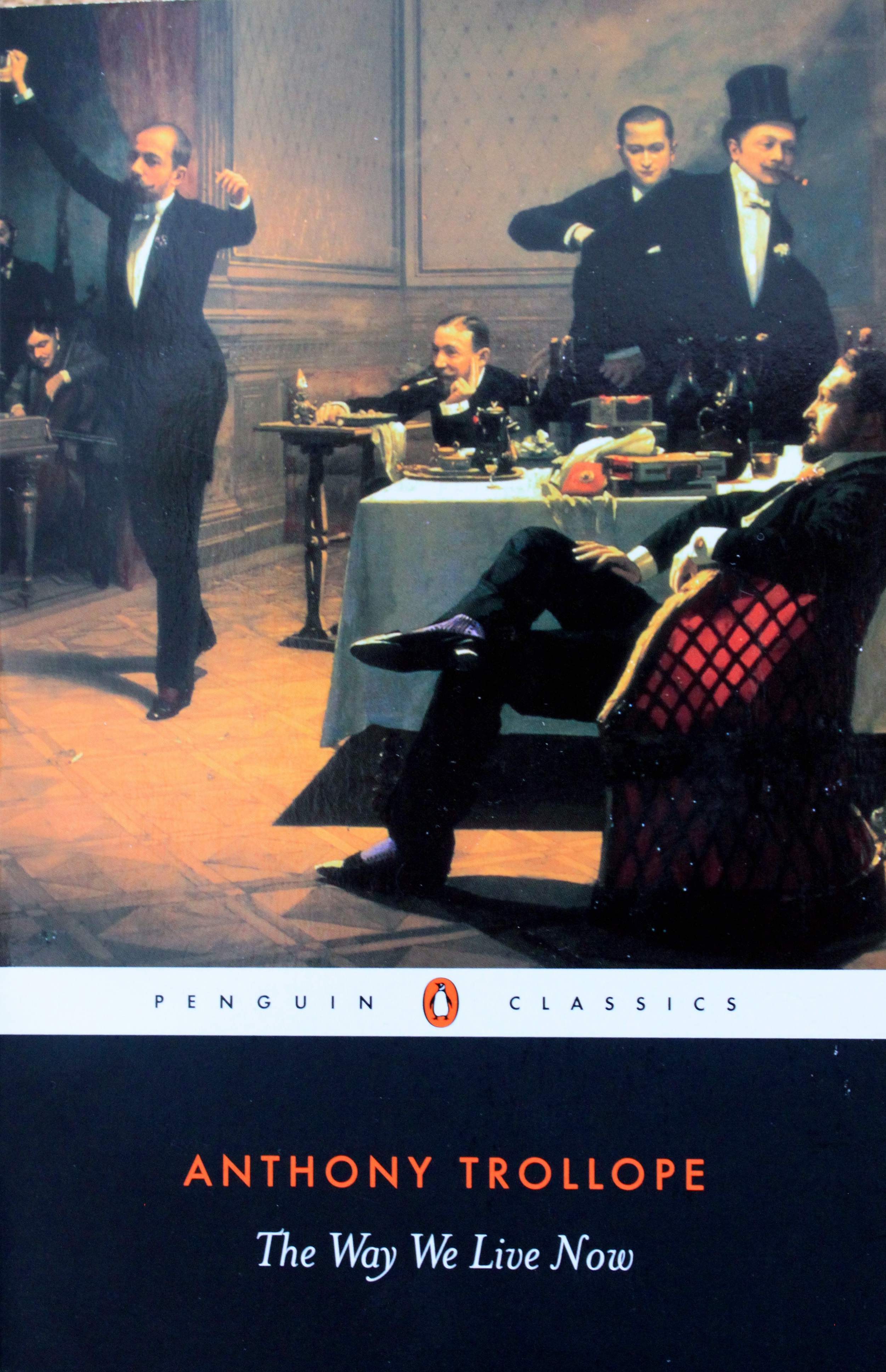Friday
I’ve been listening to The Way We Live Now (1875) and am impressed with how Trollope depicts people rationalizing their friendship with scoundrels. Given the way many in the GOP are coming around to Donald Trump, the novel seems specially relevant.
Credit must be given to those Republicans who are refusing to support Trump. In an important Washington Post column headlined “This Is How Fascism Comes to America,” neoconservative Robert Kagan is calling out the party that he has served in the past.
First of all, because the danger represented by Trump can’t be emphasized enough, here’s Kagan’s explanation of why Trump is a fascist:
We’re supposed to believe that Trump’s support stems from economic stagnation or dislocation. Maybe some of it does. But what Trump offers his followers are not economic remedies — his proposals change daily. What he offers is an attitude, an aura of crude strength and machismo, a boasting disrespect for the niceties of the democratic culture that he claims, and his followers believe, has produced national weakness and incompetence. His incoherent and contradictory utterances have one thing in common: They provoke and play on feelings of resentment and disdain, intermingled with bits of fear, hatred and anger. His public discourse consists of attacking or ridiculing a wide range of “others” — Muslims, Hispanics, women, Chinese, Mexicans, Europeans, Arabs, immigrants, refugees — whom he depicts either as threats or as objects of derision. His program, such as it is, consists chiefly of promises to get tough with foreigners and people of nonwhite complexion. He will deport them, bar them, get them to knuckle under, make them pay up or make them shut up.
Kagan has special contempt for those people who have talked themselves into supporting Trump:
In such an environment, every political figure confronts a stark choice: Get right with the leader and his mass following or get run over. The human race in such circumstances breaks down into predictable categories — and democratic politicians are the most predictable. There are those whose ambition leads them to jump on the bandwagon. They praise the leader’s incoherent speeches as the beginning of wisdom, hoping he will reward them with a plum post in the new order. There are those who merely hope to survive. Their consciences won’t let them curry favor so shamelessly, so they mumble their pledges of support, like the victims in Stalin’s show trials, perhaps not realizing that the leader and his followers will get them in the end anyway.
Kagan concludes,
This is how fascism comes to America, not with jackboots and salutes (although there have been salutes, and a whiff of violence) but with a television huckster, a phony billionaire, a textbook egomaniac “tapping into” popular resentments and insecurities, and with an entire national political party — out of ambition or blind party loyalty, or simply out of fear — falling into line behind him.
Trollope’s novel is about the relentless pursuit of money by people with titles but little else. They dream of tapping into the wealth of Melmotte, a shadowy and vulgar figure rumored to have unlimited funds. Watching them dance to his tune brings to mind various Republican flirtations with Trump.
The passage I share today, however, involves a Melmotte associate, a young gentleman who has started cheating at the men’s club. Sir Felix, another wastrel, sees him palming aces and tells his friend Dolly about it. Although Dolly is one of the victims, he responds as far too many in the GOP are responding to Trump: he would rather be cheated than undergo the ugliness that would come with a blow-up. Here’s Dolly doing a version of New Hampshire Senator Kelly Ayotte’s “I support but don’t endorse”:
On their way to the city Felix told his dreadful story about Miles Grendall. “By George!” said Dolly. “And you think you saw him do it!”
“It’s not thinking at all. I’m sure I saw him do it three times. I believe he always had an ace somewhere about him.” Dolly sat quite silent thinking of it. “What had I better do?” asked Sir Felix.
“By George;—I don’t know.”
“What should you do?”
“Nothing at all. I shouldn’t believe my own eyes. Or if I did, should take care not to look at him.”
“You wouldn’t go on playing with him?”
“Yes I should. It’d be such a bore breaking up.”
“But Dolly,—if you think of it!”
“That’s all very fine, my dear fellow, but I shouldn’t think of it.”
“And you won’t give me your advice.”
“Well;—no; I think I’d rather not. I wish you hadn’t told me. Why did you pick me out to tell me? Why didn’t you tell Nidderdale?”
“He might have said, why didn’t you tell Longestaffe?”
“No, he wouldn’t. Nobody would suppose that anybody would pick me out for this kind of thing. If I’d known that you were going to tell me such a story as this I wouldn’t have come with you.”
“That’s nonsense, Dolly.”
“Very well. I can’t bear these kind of things. I feel all in a twitter already.”
“You mean to go on playing just the same?”
“Of course I do. If he won anything very heavy I should begin to think about it, I suppose.
So the GOP has decided to go on playing with Trump just the same. Better not to believe your own eyes than to feel all in a twitter. And if your eyes start seeing the truth, look away.
Now, if Trump does win anything “very heavy,” well, maybe you’ll begin to think about it. At least you suppose you will.


